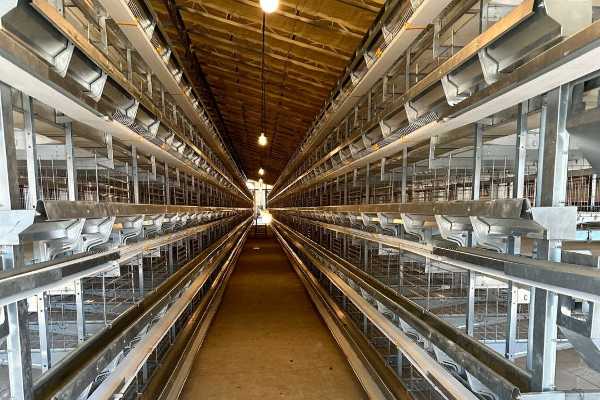Egg Laying Cage Setup for Kenya: A Comprehensive Guide
Egg production is a vital part of the agricultural sector in Kenya, and setting up an efficient egg-laying cage system is crucial for maximizing productivity. In this article, we will discuss the best practices for setting up an egg-laying cage system in Kenya, tailored to meet the specific needs of the local poultry industry.
Choosing the Right Egg Laying Cages
The first step in setting up an egg-laying cage system is selecting the right type of cage. In Kenya, the most common types of egg-laying cages are:
– Battery Cages: These are the most common type of cage, providing a compact and efficient way to house hens. They are typically made of metal and come in various sizes to accommodate different breeds.
– Nest Boxes: Nest boxes are essential for hens to lay their eggs in a comfortable and private space. It is important to ensure that there are enough nest boxes for the number of hens in the cage.
Designing the Layout
The layout of your egg-laying cage system is crucial for the overall efficiency of your farm. Here are some key considerations:
– Space Allocation: Each hen should have enough space to move around comfortably. As a general rule, a hen should have at least 0.5 square meters of space in a battery cage.
– Ventilation: Good ventilation is essential to maintain a healthy environment for the hens. Ensure that the cages are well-ventilated to prevent heat stress and the buildup of ammonia.
– Lighting: Proper lighting is important for regulating the laying cycle of hens. In Kenya, natural light is often sufficient, but during the shorter days, artificial lighting may be necessary.
Maintenance and Hygiene
Regular maintenance and hygiene are vital to keep your hens healthy and increase egg production. Here are some tips:
– Cleaning: Clean the cages regularly to prevent the buildup of dirt and bacteria. This includes removing droppings, cleaning feeders, and replacing soiled bedding.
– Sanitation: Sanitize the cages and equipment periodically to prevent disease outbreaks.
The Role of Technology
In recent years, technology has played a significant role in improving egg production. Consider the following technological advancements:
– Automated Feeding Systems: These systems can provide a consistent and controlled feed supply to the hens, which can lead to better egg quality and production.
– Environmental Control Systems: These systems can automatically adjust the temperature, humidity, and ventilation in the cage houses to create an optimal environment for the hens.
Why Choose Livi Machinery?
At Livi Machinery, we understand the unique challenges faced by the poultry industry in Kenya. Our range of high-quality egg-laying cage systems is designed to meet the specific needs of your farm. Here’s why you should choose us:
– Customization: We offer customizable solutions to fit your farm’s layout and requirements.
– Quality Assurance: Our products are made from durable materials to ensure long-lasting performance.
– Expert Support: Our team of experts is always ready to assist you with any queries or issues you may have.
Contact us today to learn more about our egg-laying cage systems and how we can help you achieve maximum productivity on your farm.

